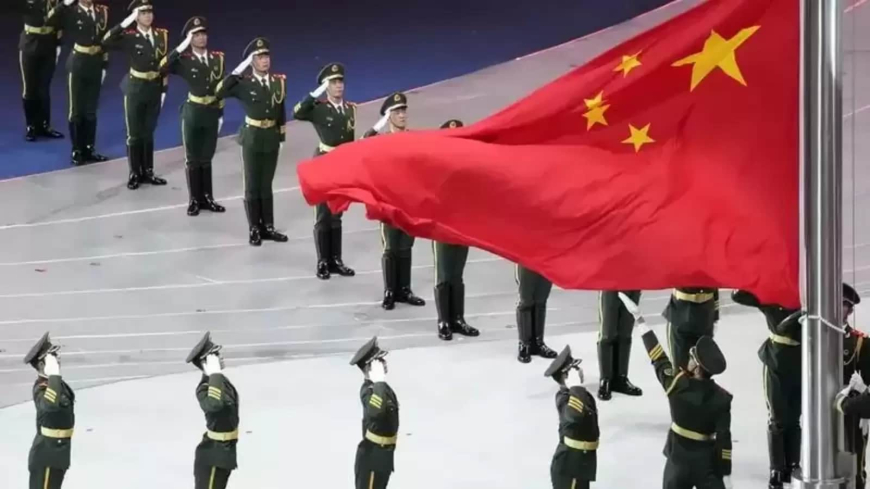AVIC Chengdu to Beijing Navigation Control – Chinese Defence Stocks Volatile Amid Fading India-Pakistan Tensions
Chinese defence stocks saw volatility as AVIC Chengdu shifted navigation control to Beijing, amid easing India-Pakistan tensions. Analysts weigh in on future market trends.

Beijing, June 3, 2025 — Chinese defence stocks experienced heightened volatility on Tuesday following the internal reorganization of the Aviation Industry Corporation of China (AVIC), which saw its strategic navigation control center shift from Chengdu to Beijing. The market movement was compounded by reports of de-escalating tensions between India and Pakistan, traditionally key drivers of defence-sector optimism in the region.
Strategic Realignment: AVIC's Chengdu to Beijing Move
AVIC, the state-owned aerospace and defence behemoth, confirmed the consolidation of its navigation and aerial surveillance command under the central Beijing authority. The transition, framed as a "strategic centralization for enhanced integration and decision-making agility," is seen as part of China’s broader defence modernization campaign outlined in its latest Five-Year Plan.
According to an AVIC press statement, the move aims to "streamline strategic functions, improve civilian-military integration, and align with the digital command protocols emerging from ongoing aerospace innovation."
However, the operational shift stirred uncertainty across Chinese defence stocks, with investors questioning whether the change indicates a slowdown in regional arms escalation or a temporary internal recalibration.
Market Reaction: Defence Equities in Flux
Following the news, major defence contractors listed on Chinese bourses recorded a mixed performance. China North Industries Group Corporation (Norinco) fell 2.4%, while AVIC Electromechanical Systems dipped by 1.7% in afternoon trading. Meanwhile, shares of China Aerospace Science and Technology Corporation (CASC) fluctuated before closing marginally higher by 0.3%.
"The stock market always reacts to shifts in command structure, especially in strategic sectors like defence," said Ming Zhao, lead analyst at SinoTech Securities. "The AVIC move is likely to improve long-term operational efficiency, but in the short run, investors are spooked by the uncertainty."
Easing Geopolitical Tensions: India and Pakistan Back Off
Further complicating market sentiment is the recent easing of cross-border hostilities between India and Pakistan. The two South Asian nuclear-armed neighbors have taken a conciliatory tone over the past two weeks, following backchannel diplomacy facilitated by neutral third parties, including Oman and the UAE.
According to a senior official from India’s Ministry of External Affairs, “The Line of Control has seen the fewest violations in a month since early 2024. Both sides are pursuing de-escalation.”
For Chinese defence firms that rely partly on regional instability to drive foreign demand and domestic R&D funding, a cooling of Indo-Pak tensions is a double-edged sword.
Analyst Perspective: Short-Term Risk, Long-Term Growth
Market experts remain divided on the medium-term implications of these developments.
“Investors should interpret the AVIC transition not as a cutback, but as an investment in more centralized, AI-driven defence operations,” noted Dr. Claire Wu, a senior fellow in defence economics at the China Institute of Strategic Studies. “However, if regional conflicts de-escalate, the political incentive for rapid military procurement may slow.”
On the other hand, some believe the current dip offers a buying opportunity. “Defence stocks are notoriously cyclical and geopolitically sensitive,” said Kevin Liao, fund manager at Huaxia Capital. “This may be the bottom before a new wave of government orders comes in Q3 as Beijing prepares its annual military exercises.”
Investor Outlook: Watching Policy, Not Panic
With both the AVIC reshuffle and geopolitical thaw playing out simultaneously, investors are advised to adopt a cautious yet watchful stance.
Institutional investors are reportedly rebalancing portfolios toward more diversified sectors while keeping close tabs on the next signals from China’s Ministry of National Defense and foreign policy department.
“There's no structural damage here—just turbulence,” said Liao. “Defence remains a cornerstone of the Chinese state’s strategic investment.”
Retail investors, however, are more jittery. Baidu forums and WeChat investor groups are flooded with mixed messages, with some day traders exiting defence names and rotating into AI and semiconductors, sectors considered safer in the current environment.
Global Perspective: Is This a Trend?
Globally, the decline in tensions between India and Pakistan may signify a broader regional trend toward stabilization. Defence analysts point out that similar trends are emerging in the Korean peninsula and South China Sea, though with their own complexities.
“In a multipolar world, nations are calibrating between deterrence and diplomacy,” said Dr. Arvind Menon, a geopolitical strategist at the University of Singapore. “China’s consolidation of defence command may be an attempt to shift from reactive to predictive strategic planning.”
Conclusion
While the AVIC navigation control shift and easing India-Pakistan tensions have rattled Chinese defence stocks in the short term, the broader narrative points to a reorganization rather than a rollback. Investors are urged to differentiate between tactical uncertainty and long-term strategic growth.
As Ming Zhao summed it up: “Don’t confuse volatility with vulnerability. Defence remains a national priority—it’s just evolving in shape and speed.”
What's Your Reaction?
 Like
0
Like
0
 Dislike
0
Dislike
0
 Love
0
Love
0
 Funny
0
Funny
0
 Angry
0
Angry
0
 Sad
0
Sad
0
 Wow
0
Wow
0












































































